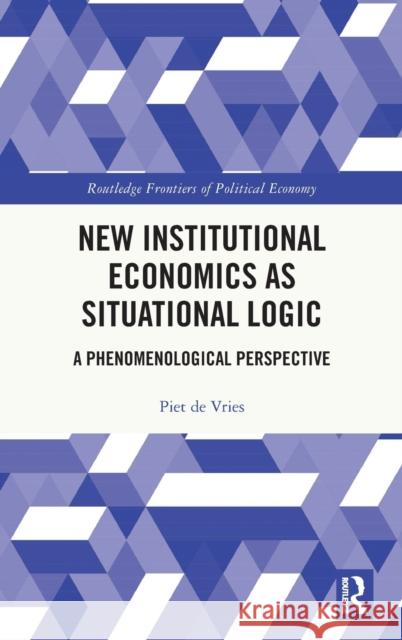New Institutional Economics as Situational Logic » książka
New Institutional Economics as Situational Logic
ISBN-13: 9781138790384 / Angielski / Twarda / 2023 / 336 str.
New Institutional Economics as Situational Logic
ISBN-13: 9781138790384 / Angielski / Twarda / 2023 / 336 str.
(netto: 629,71 VAT: 5%)
Najniższa cena z 30 dni: 556,76
ok. 22 dni roboczych.
Darmowa dostawa!
New Institutional Economics is increasingly involved in questioning the basic assumptions of economic theory but rather than being a homogenous field it encompasses a particularly broad domain of theories which vary in approach, research object, and methodology. In particular the concept of rationality is a rich source of dispute. In fact, the history of New Institutional Economics presents a bifurcation between on the one hand approaches which are reminiscent of the old Institutional Economics, and on the other hand, types of NIE theories which opt for analytical strength by limiting the theoretical variables. This bifurcation generates a host of methodological issues. For instance, what is the analytical consequence of assuming bounded rationality? What is a theorist's ambition in explaining reality? Adjacent to the methodological issues, the variety of New Institutional Economics approaches raises epistemological issues, in particular about the nature of social reality. In this respect, the application of a phenomenological view of social reality and social sciences offers promising insights regarding the theoretical evolution of New Institutional Economics. This book offers a methodological-epistemological treatise arguing for the positioning of New Institutional Economics as situational logic; i.e., an economic theory which formulates and studies single-exit situations which face the economic actor. This point of view underlines the attractiveness of the analytical strength of economic theory, simultaneously paying attention to human beings' institutional reality. Ultimately, this book presents a critical appraisal of New Institutional Economics theories based on a substantiated methodological perspective that effectively navigates the theorist between realism and rigor.











